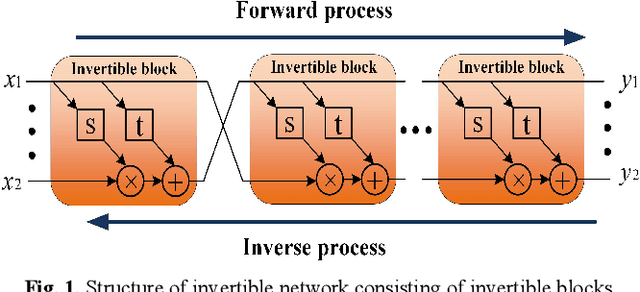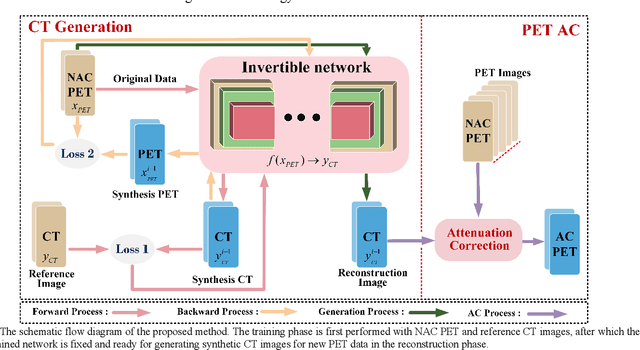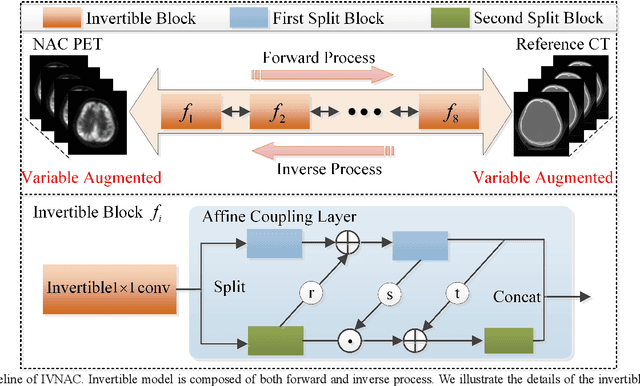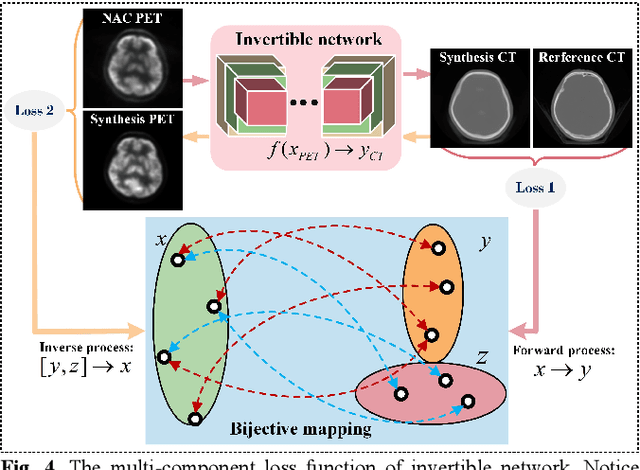Synthetic CT Generation via Variant Invertible Network for All-digital Brain PET Attenuation Correction
Paper and Code
Oct 03, 2023



Attenuation correction (AC) is essential for the generation of artifact-free and quantitatively accurate positron emission tomography (PET) images. However, AC of PET faces challenges including inter-scan motion and erroneous transformation of structural voxel-intensities to PET attenuation-correction factors. Nowadays, the problem of AC for quantitative PET have been solved to a large extent after the commercial availability of devices combining PET with computed tomography (CT). Meanwhile, considering the feasibility of a deep learning approach for PET AC without anatomical imaging, this paper develops a PET AC method, which uses deep learning to generate continuously valued CT images from non-attenuation corrected PET images for AC on brain PET imaging. Specifically, an invertible network combined with the variable augmentation strategy that can achieve the bidirectional inference processes is proposed for synthetic CT generation (IVNAC). To evaluate the performance of the proposed algorithm, we conducted a comprehensive study on a total of 1440 data from 37 clinical patients using comparative algorithms (such as Cycle-GAN and Pix2pix). Perceptual analysis and quantitative evaluations illustrate that the invertible network for PET AC outperforms other existing AC models, which demonstrates the potential of the proposed method and the feasibility of achieving brain PET AC without CT.
 Add to Chrome
Add to Chrome Add to Firefox
Add to Firefox Add to Edge
Add to Edge